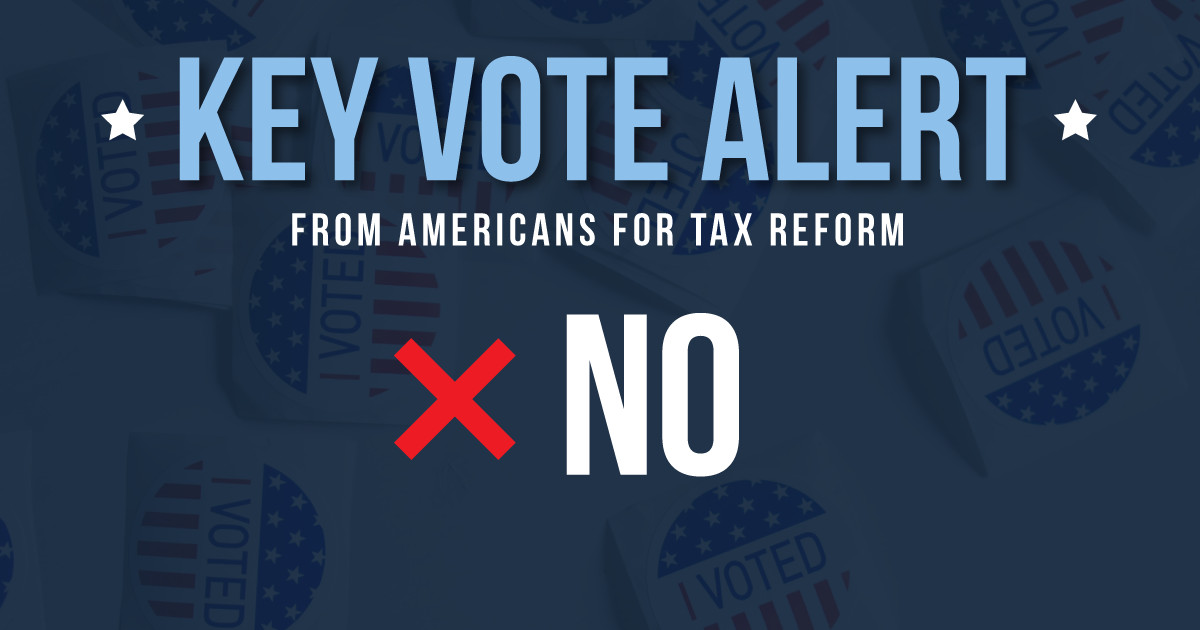
Americans for Tax Reform is opposed to the Credit Card Competition Act (CCCA), whether it is considered by itself or as part of a larger legislative package.
The CCCA gives the Federal Reserve (Fed) the power to pick winners and losers, which is anathema to free-market policy. Why should we give the Fed more regulatory authority—which is all the CCCA does—when it failed to supervise Silicon Valley Bank and propagated the worst inflation America has faced in almost forty years? The Fed has been a primary contributor to the U.S.’s economic turbulence. The Fed should not be rewarded with more authority to regulate the credit card market.
A coalition of over 30 conservative groups and individuals sent a letter to Congress publicly opposing the CCCA.
A summary of the reasons for opposition can be read below:
- The CCCA harms small businesses. An academic paper looking at the CCCA finds that small businesses may lose $1 billion in rewards and potentially lose access to $700 billion in revolving lines of credit if the CCCA is enacted. Small businesses will receive more benefits from tax cuts. Instead of considering the CCCA, Congress should extend “certain provisions from the Tax Cuts and Jobs Act, such as bonus depreciation, expanding the standard deduction, cutting individual rates, and enacting Rep. Lloyd Smucker’s (R-Pa.) bill to provide permanency to the section 199A small business deduction.”
- The bill does not promote competition; instead, it dramatically expands the role of the federal government to overregulate the market for credit cards. Today, requiring multiple dual-message networks to function over one card is technologically infeasible. The cost of overhauling our current credit system to comply with the mandates in the bill could reach $5 billion. This “competition” bill also excludes three-party model networks, such as American Express and Discover.
- The CCCA is not needed because free market competition is already creating competition in the credit card market. The Capital One and Discover merger “is a perfect example of why free-market competition is always superior to unelected government bureaucrats picking winners and losers. Real competition comes from private sector innovation, which increases consumer welfare and creates value for shareholders and retirees.”
- The mandates in the bill are so costly that more than $75 billion in rewards that consumers receive every year would largely disappear. According to the International Center for Law & Economics, “86% of credit cardholders have active rewards cards, including 77% of cardholders with a household income of less than $50,000.” The disappearance of rewards would likely harm minority communities and small businesses.
- The bill authorizes the federal government to intervene in contracts between private parties. The federal government should not be interfering in private contractual agreements. This encroachment will force small community banks and credit unions to severely limit or cease providing co-branded cards that millions of consumers use every day.
- There is no evidence that this bill will pass savings down to consumers. A report from the Government Accountability Office stated that if the regulations in the Durbin Amendment “had not been implemented, 65 percent of noninterest checking accounts offered by covered banks would have been free.” Since the enactment of the Durbin Amendment, about 22% of retailers have raised prices on consumers while only 1% lowered prices. Additional regulation on credit interchange will affect fees and interest in the credit market, thus increasing costs for consumers.
- Because the bill forces credit cards to allow access to all networks, proprietary technology will be exposed to competing networks, destroying incentives to create new and innovative fraud protection and cybersecurity. As one paper points out, the routing mandates “largely undermine the economics of networks and issuers.”
- The bill does not resolve the issue of applying merchant category codes (MCCs) to firearm sales. There is state legislation that has already been enacted, such as in Florida, to prohibit financial firms and the government from surveilling purchases of firearms. Federal legislation has also been introduced to prohibit firearm retailer MCCs. However, the CCCA will do nothing to solve this issue.
- The bill does not ban China UnionPay or other state-owned payment card networks from operating in the U.S. Rather, the bill tells the Fed to “establish a public list” of payment card networks that “pose a risk to the national security of the United States” or is “owned, operated, or sponsored by a foreign state entity.” Drafting a list of payment networks owned and operated by totalitarian regimes is a far cry from a bill that explicitly bans these payment card networks.
- The bill is a perfect example of Congress ceding its Article I authority to the Fed. All the provisions of this bill require the Fed to draft rules to carry out its mandates. The Fed does not receive Congressional appropriations; instead, it is self-funded by earning interest through its open market operations. This makes the Fed, and any rules it issues, far less accountable to Congress. If CCCA is enacted, the Fed will regulate credit cards decades into the future. This is evidenced by the Fed’s proposed rule to amend Regulation II and lower the interchange fee cap for debit cards. New regulatory authority, once given, is extremely hard to take back.
ATR is urging lawmakers to vote against the CCCA.

